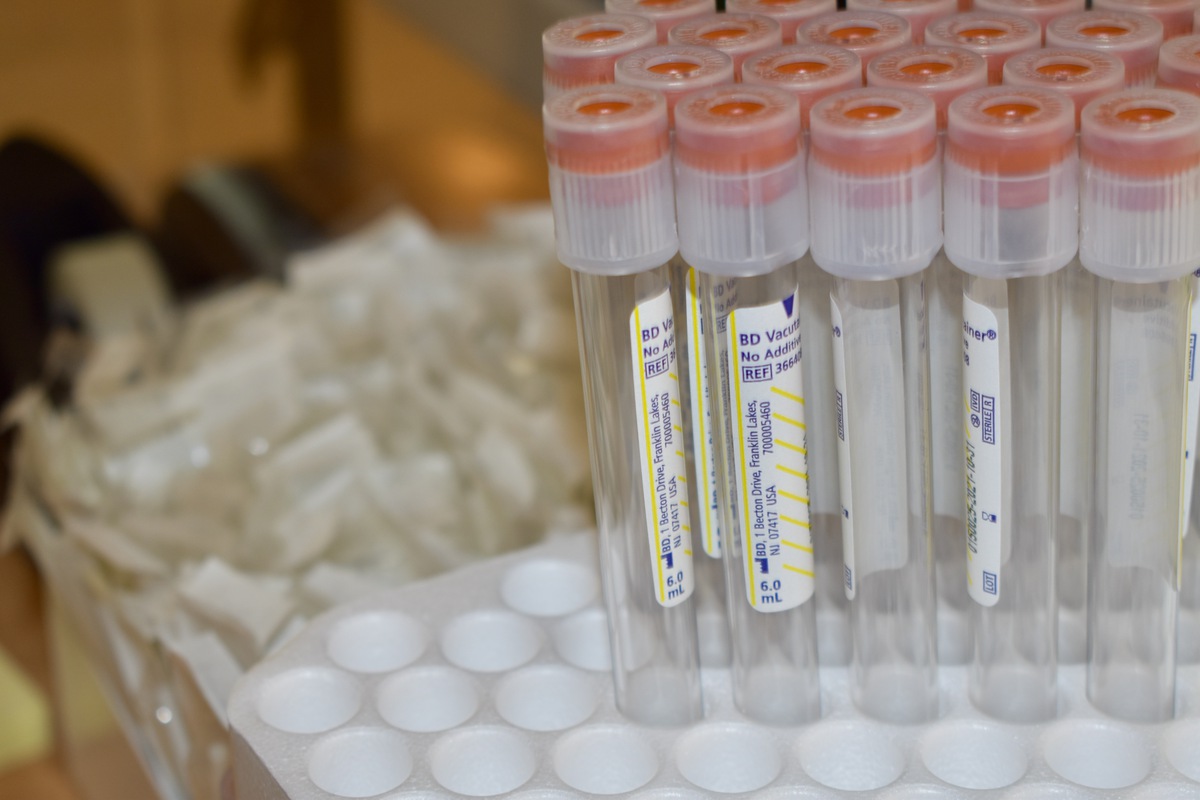Administrators weigh reduction in COVID-19 testing requirements
As undergraduate students return from spring break and the BA.2 variant spreads across Connecticut, administrators are considering moving from twice to once a week testing for undergraduates.

Regina Sung, Photo Editor
A week after Yale partially removed its indoor mask mandate, University administrators are seriously considering reducing undergraduate testing requirements from twice to once weekly, according to members of Yale’s public health committee.
The twice weekly requirement for testing has been in place for undergraduates living on campus since after Thanksgiving break. As students return from spring break this week, Richard Martinello, medical director for infection prevention at Yale New Haven Hospital and a member of the public health committee, told the News that the surge in cases that could come from student travel is “certainly a concern,” especially as the new BA.2 variant has spread across the country. He said he suspects that the testing requirements will not be changed until there is data to show whether cases spiked in the aftermath of spring break travel.
“I think people are enthusiastic about the possibility of decreasing the burden of testing on people,” Martinello told the News.
Before students left for break, there were 11 positive cases on Mar. 19, and there have now been 83 positive cases in the past seven days, when undergraduates were largely off campus.
The testing reduction would come in the wake of Yale’s decision to remove its mask mandate in many public spaces. Vermund told the News that while he approves of the partial removal of the mask mandate, it is important to continue requiring masks in classroom settings due to the density of students in classrooms. He also emphasized the need to continue tracking the state of the pandemic within the student population and respond to any changes.
“I do think that, given the minimal transmission levels in the state, that routine mask use is no longer necessary,” Vermund told the News, “I do think we should be mature about it and thoughtful about it that if we see a resurgence, and if in the highly vaccinated Yale community we actually see substantial case numbers we may need to mask again, but for the time being, I think we’re fine.”
Howard Forman, a School of Public Health professor, told the News that with the current rise in cases, the University should continue to monitor cases when making decisions on changing testing policies. Connecticut has seen a 17 percent increase in COVID-19 cases over the past 14 days.
“We don’t know exactly what’s going to happen next, so some level of mitigation is appropriate,” Forman told the News.
However, he added that if the case numbers stabilize at a low level, he expects the testing requirements will change.
Forman said he is optimistic that there will not be any large outbreaks for the rest of the school year. He added that, during his shifts, he has not seen a hospitalized COVID-19 patient in the ER in at least four weeks, whereas a few months ago, he would see up to five cases each night.
“I think we’re going to have more cases,” Forman said. “The question is, will it be out of control or will it have another little bump up, then come down again. Based on the very low prevalence in the community right now, even though it’s growing, but from a very low level, I’m optimistic that we’re going to be able to manage these final seven weeks without a massive outbreak.”
Dean of the School of Public Health Sten Vermund said that University COVID-19 Coordinator Stephanie Spangler and University Provost Scott Strobel have been comparing Yale’s policies with other universities including Brown, Harvard and Cornell when designing the University’s approach. Cornell University has recently seen a rise in cases associated with the spread of BA.2.
Because of Yale’s recent surges, the University has exercised more caution than many peer institutions, Vermund noted.
“I think the reality is that rates were declining in Connecticut, rates were rising in Yale undergraduates,” Vermund told the News. “ I think in that sense, a modicum of caution was indicated.”
These updates come as the BA.2 variant spreads across Connecticut, with predictions that it may make up 95 percent of Connecticut’s COVID-19 cases by April. The BA.2 variant is a subvariant of the omicron variant, but is 30 percent more infectious than the original omicron variant which was 100 percent more infectious than the delta variant.
Vermund told the News that it is “prudent” to be concerned about BA.2 and track its presence. Martinello said he is “definitely concerned” about BA.2 and he is “keeping a close eye” on the movement of BA.2 across the country and within Connecticut.
According to Martinello, it is estimated that over half of the COVID-19 samples from Yale New Haven hospital — which are analyzed at a School of Public Health lab led by Associate Professor of Epidemiology Nate Grubaugh —are cases of BA.2.
Vermund added that state funding for Grubaugh’s lab was just cut, so researchers will have to work with the state to continue to support the efforts that help track variants like BA.2.
Yale currently has five COVID-19 testing locations.







